11 strange natural wonders that challenge visitors' imagination
These strange wonders are formed completely naturally as a testament to the limitless creativity that nature can create.
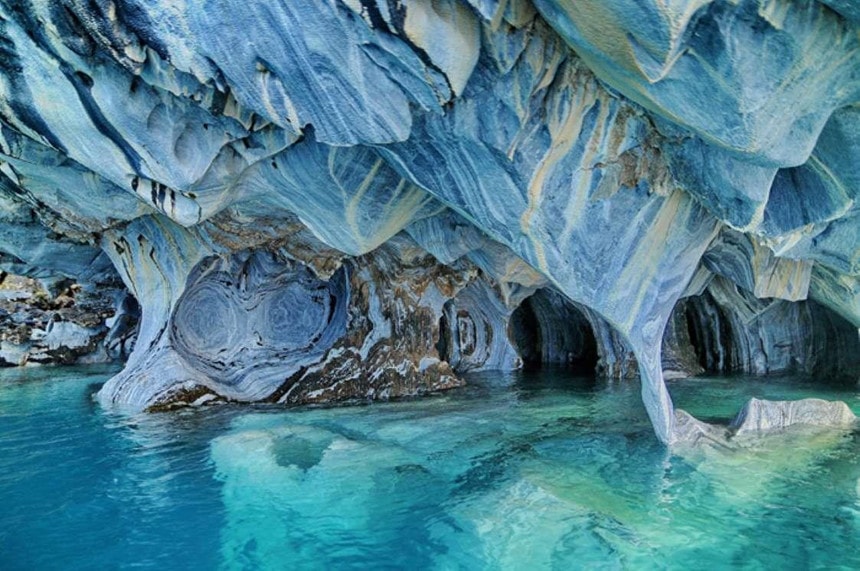 |
| 1. Marble Caves, Chile:Located inside a turquoise water cave on Lake General Carrera, Chile, there are up to 5 million tons of marble, they create "bizarre" shapes. Visiting the cave directly is an experience that everyone wants, but getting here is not easy. After a series of flights to the city of Coyhaique, you need to drive another 320 km and then board a small boat to be able to enter the cave. |
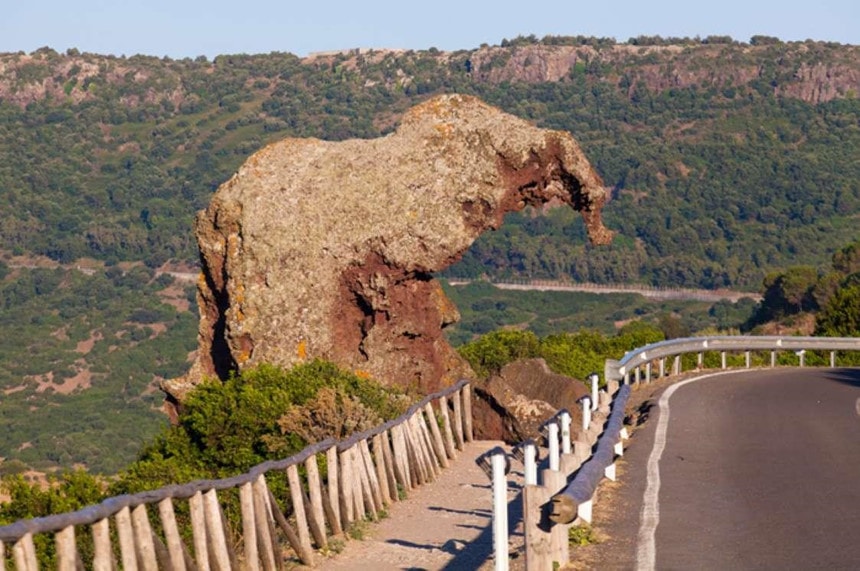 |
| 2. Elephant Rock, Italy:This rock is mainly composed of trachyte, a substance found in volcanic lava. The rock is called elephant rock because of its shape, which resembles an elephant. Another name for the rock is Sa Pedra Pertunta, which means "perforated rock", because of the many small holes on its body. You can easily visit the rock because it is located right next to the road Castelsardo, Sardinia, Italy. |
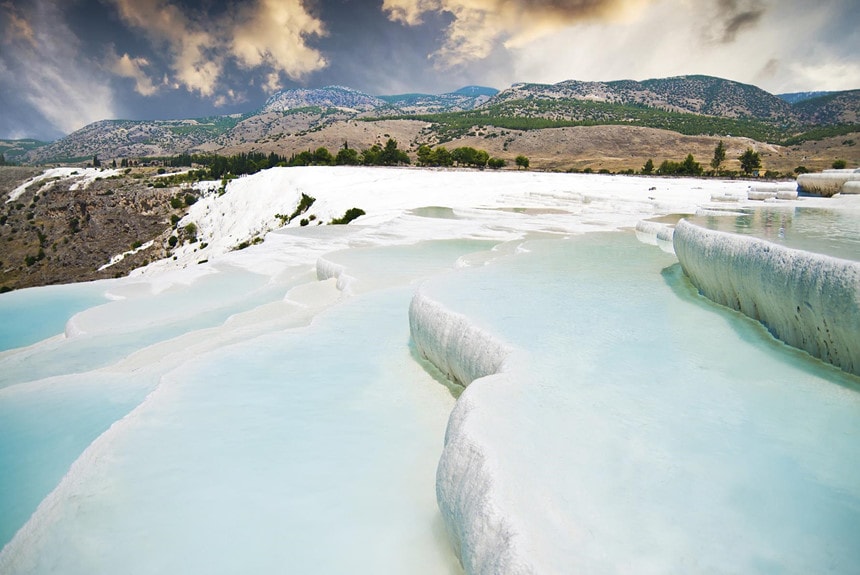 |
| 3. Pamukkale natural spa lake, Türkiye:Pamukkale is a natural hot spring in Türkiye that is rich in minerals and is used as a natural spa. The unique beauty of the lake is the layers of small pools made of calcium, creating a clear blue water. This area has been a natural spa since the ancient Romans, when they built the city of Hierapolis thousands of years ago. |
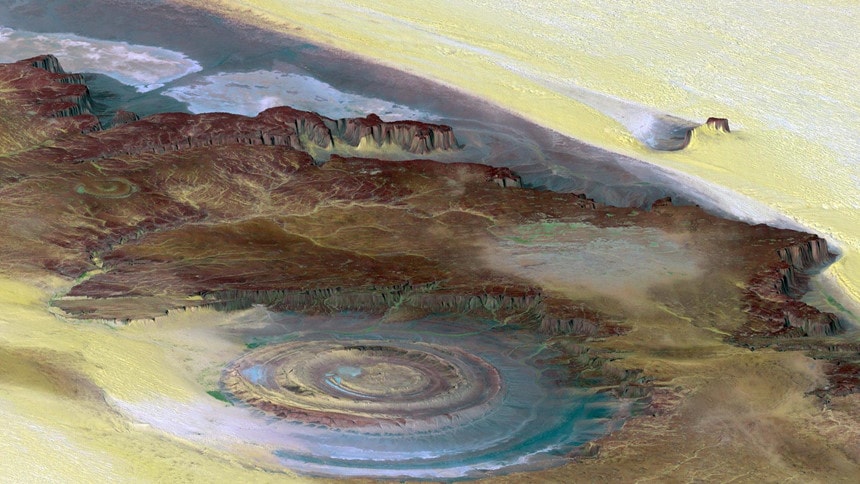 |
| 4. Eye of the Sahara, Mauritania:This is the name of a giant circular area in the Sahara desert discovered by NASA, with a diameter of about 50 km. Many experts have speculated that this is a fossil of a meteorite collision with the earth millions of years ago. However, recent research suggests that this is just the formation of natural erosion. |
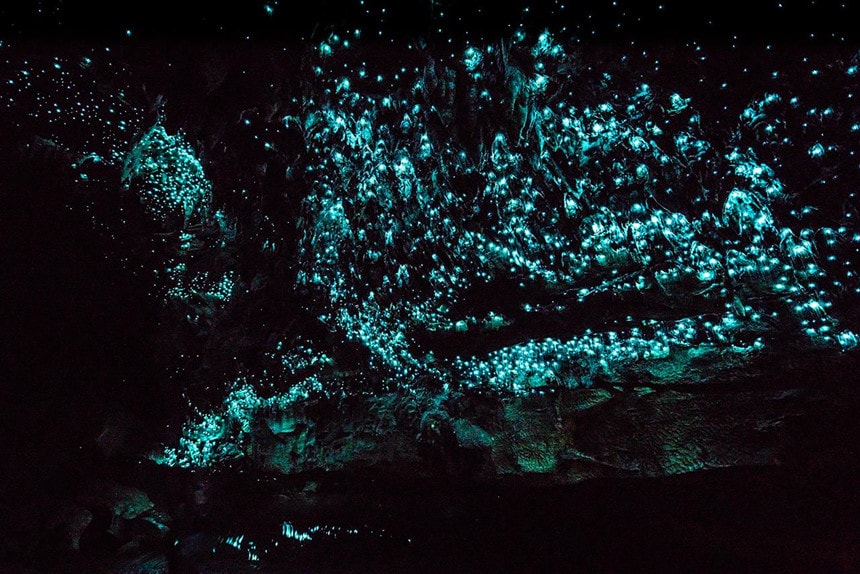 |
| 5.Glow Worm Cave, New Zealand:This strange cave located on Lake McLaren is a mystery to scientists. The cave is formed from limestone mountains eroded by the flow, clinging to the top of a species of glowing worm Arachnocampa luminosa, giving visitors the feeling of looking at a beautiful "galaxy". First discovered in 1880, the cave has become an iconic tourist destination of New Zealand. |
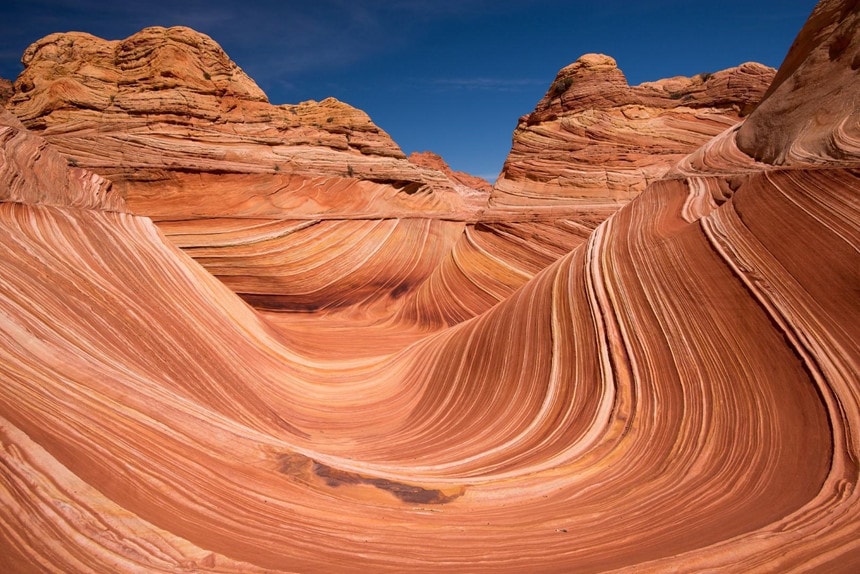 |
| 6.Wave Rock, Utah, USA:The name describes the stunning wave-like rocks. This surreal landscape is the most famous and popular tourist attraction in the American Southwest. Wave Rock is made up of multi-colored Navajo sandstone, which curves and curves around ancient rocks. |
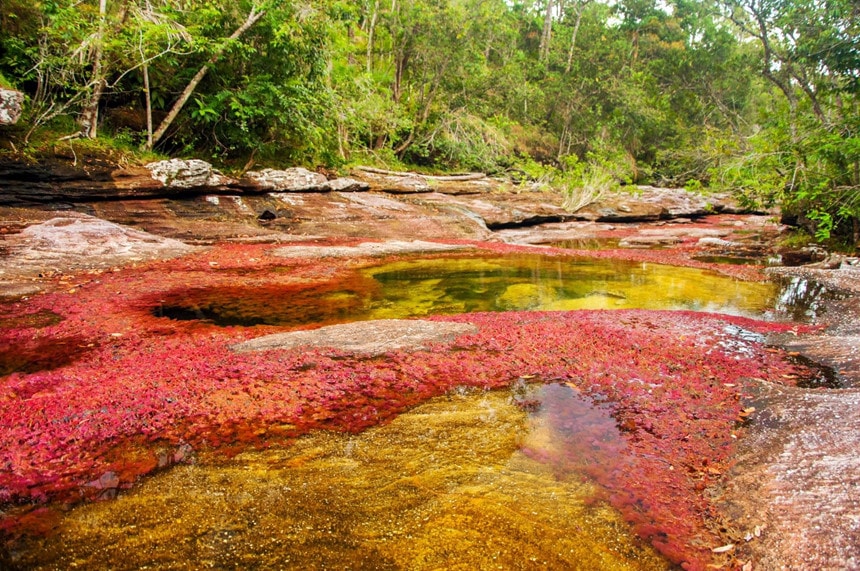 |
| 7. Cano Cristales River, Colombia:Known as the “river of colors” or “rainbow river,” Cano Cristales is a riot of color during the dry months. This is due to a type of algae called macarenia clavigera, which appears yellow when underwater but turns red-orange when the water recedes. |
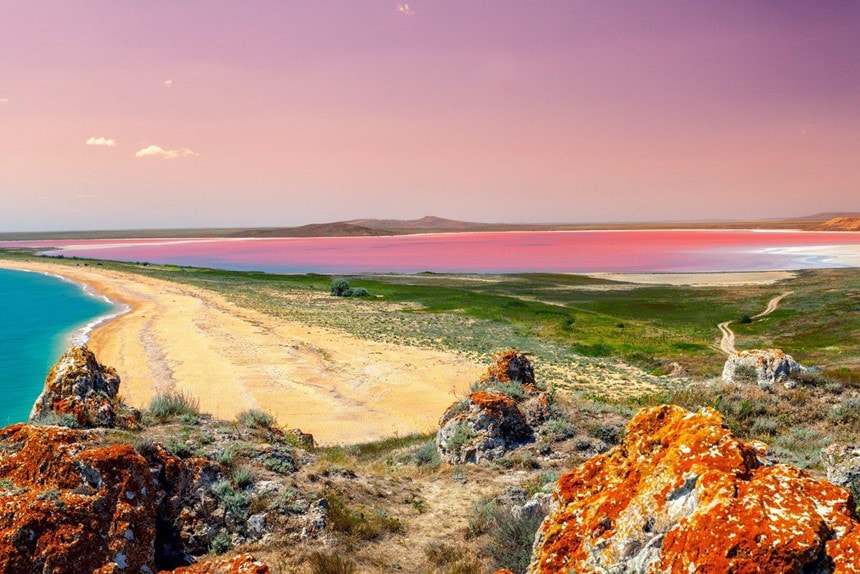 |
| 8.Lake Hillier, Australia:Lake Hillier is the only pink lake in the world. No one knows for sure what causes this strange color. Scientists speculate that the phenomenon may originate from the organisms dunaliella salina and halobacteria. Another hypothesis is that it is caused by halophilic bacteria living in the salt crust. In any case, Lake Hillier is very safe and you can swim freely. |
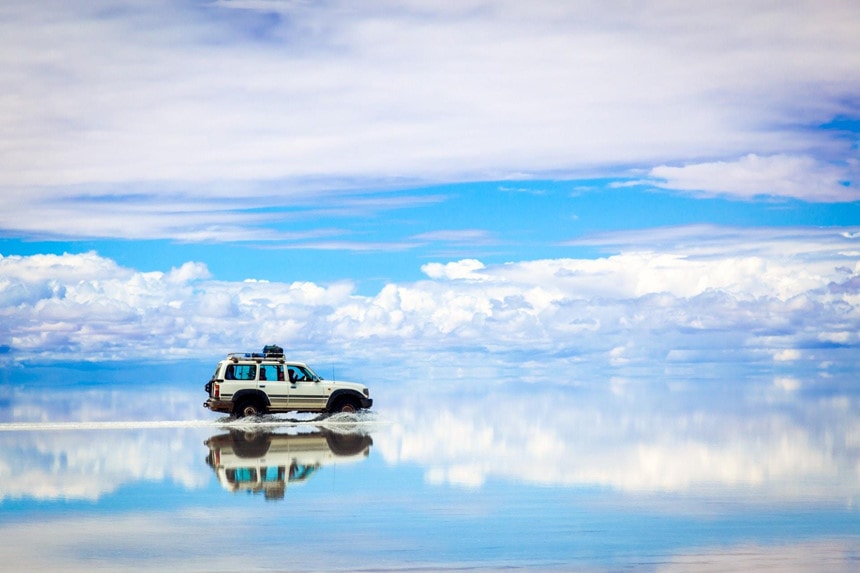 |
| 9. Salt Flats Salar De Uyuni, Bolivia:Formed by the geological transformation of many prehistoric lakes, Salar De Uyuni is now the world’s largest salt flat. The flat, reflective area makes for a dreamlike landscape. There’s also a salt hotel, the Palacio de Sal, with all the furniture and walls made from salt blocks. |
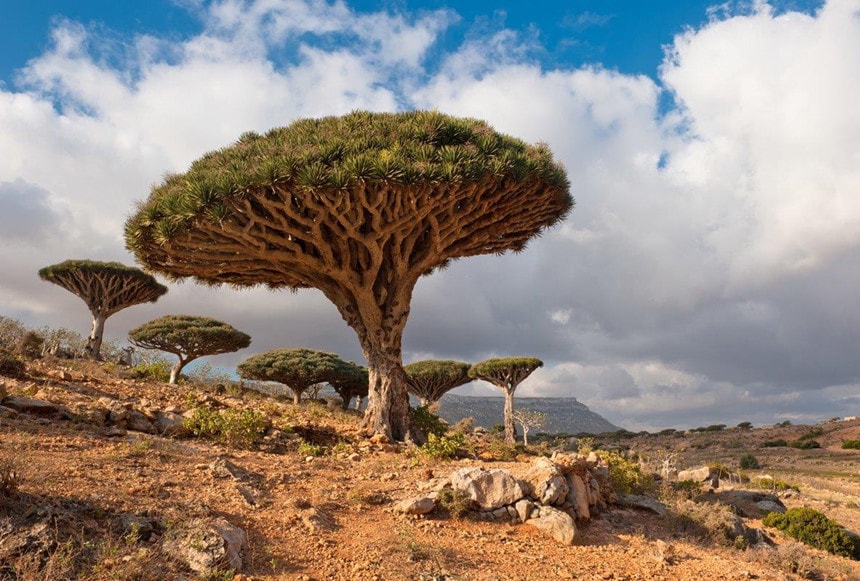 |
| 9. Socotra Islands, Yemen:In stark contrast to the terrifying aridity of Yemen, the Socotra archipelago is home to an incredibly rich flora and fauna, with some plants dating back 20 million years. The archipelago is one of the world’s most remote tourist destinations, so isolated that a third of its plants don’t exist anywhere else. If you have the chance to visit Socotra, you’ll feel like you’re visiting another planet. |
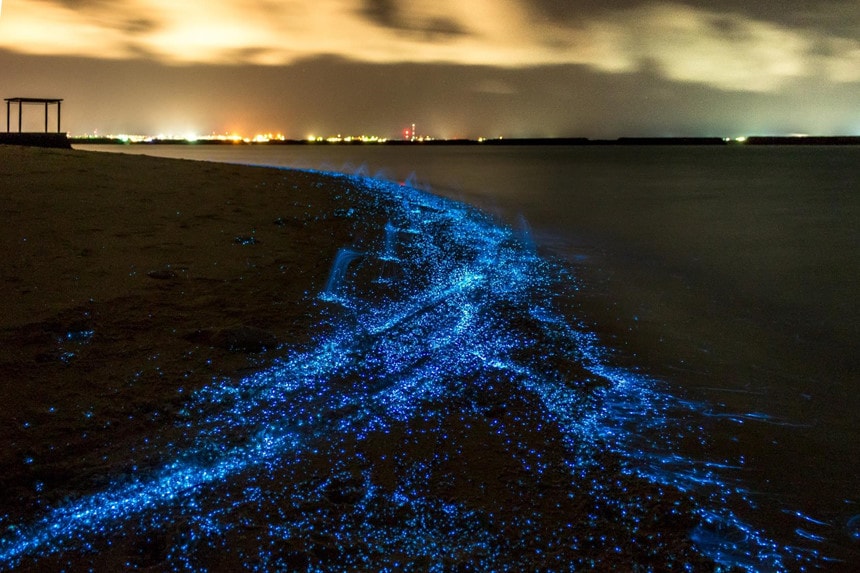 |
| 10.Vaadhoo Island, Maldives:This enchanting island is known for its beaches that glow a magical blue at night. At first glance, the water appears to be a mirror reflecting the starry sky. This unique phenomenon is caused by bioluminescence, a type of single-celled algae called dinoflagellates that emits light to confuse predators. |
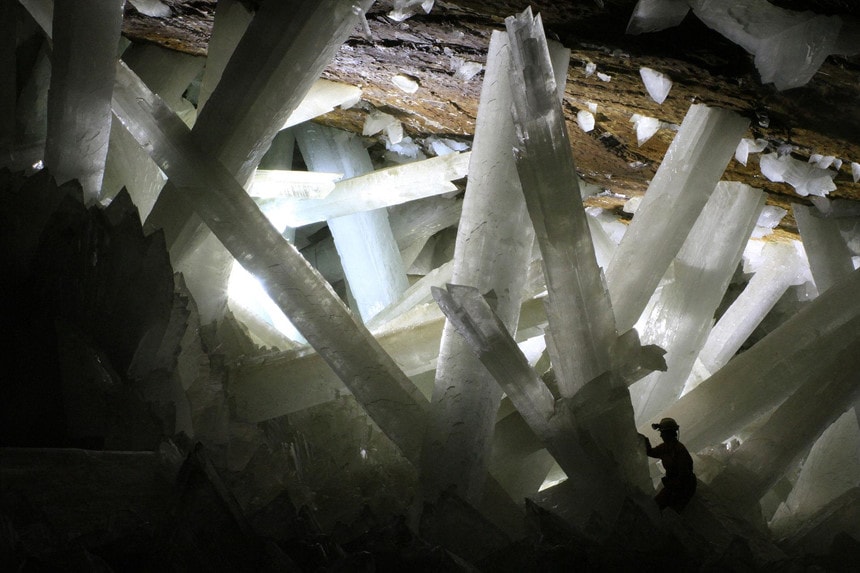 |
| 11. Crystal Caves, Mexico:The Crystal Cave was discovered in 2000, located 300 meters below ground. This is where the world's largest natural crystals are located. Most of the cave has not been fully explored yet due to the harsh natural conditions. The average temperature in the cave is 136 degrees Celsius, humidity is up to 99%, making it difficult for explorers without protective gear to endure for less than 10 minutes. |

